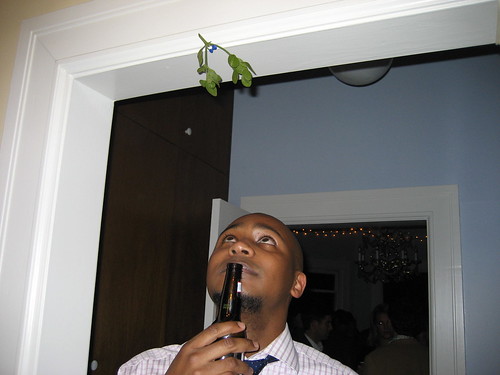I highlight this a) because it's a very good read and b) because within the article is yet another mention of the "acting white" syndrome, a situation that's been getting a decent bit of ink recently. This was an interesting passage:
Now Loury's young co-author, Harvard's Roland Fryer, is attracting attention for his study of "acting white," where black kids who work hard at school are said to be ostracized by their peers. Despite a lot of talk about the problem--Barack Obama raised it in his famous speech to the Democratic National Convention--some academic researchers weren't convinced that it existed. Their surveys showed that kids who were doing well at school, whether black or white, had lots of friends.
This goes back to the discussion from a few weeks ago over at Extra Credit on the "acting white" phenomenon. One thing I'm noticing is that a lot of people are overlooking the racial make-up of the schools they are examining when this issue comes up. When you have a student body that is mostly homogeneous (in this case, let's say a mostly black or mostly white elite private school with a strong academic reputation) you're still going to have cliques; nerds, jocks, emo kids, hipsters...what have you. But the difference is that each student's actions will be judged within the context of the mostly similar student body, so, if you have an all black school where there are a lot of high achievers, no one is going to get singled out for "acting white" by doing well in class; that student might be called a nerd, but since everyone else is, in theory, also hitting the books hard, that student doesn't have an additional stigma attached to him.
However, in the context of a racially mixed school with students from a variety of economic backgrounds, you start to add additional layers of judgment (for lack of a better way of putting it). You get the same kind of social groupings (jocks, nerds), but now those groups exist in comparison to one another and they are also subject to differing levels of achievement within each group. That is to say, a black kid who was not out of the ordinary at the all black elite private school for being an academic star might now potentially be an abberation at the mixed school because the other black kids there don't care about academics as much and they now have an outside group against which they can can compare him to (the white students). And, if it's generally assumed as fact that the white kids are going to try to do well in the classroom, and the black student is also trying to do the same, some of the black kids might begin to judge him in that context and deem their peer to be "acting white".

No comments:
Post a Comment